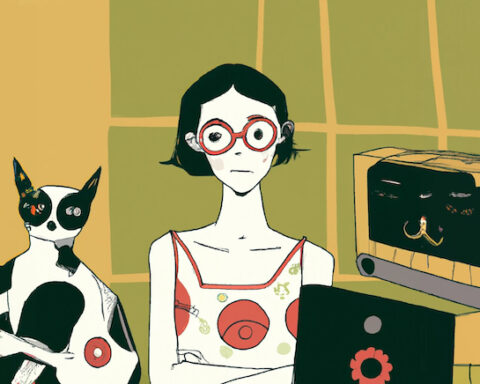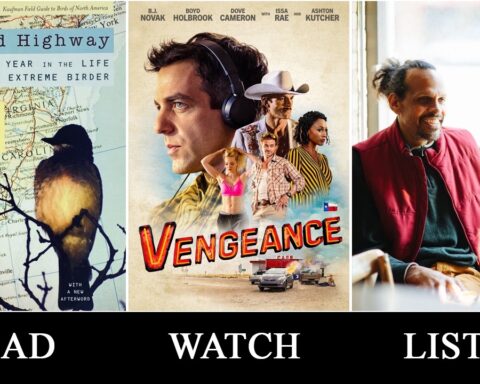Politainment
In 1992, Rupert Murdoch, the owner of Fox News and other major news outlets, admitted, “We are in the entertainment business.”[1] Roger Ailes, the now-disgraced brainchild behind Fox News, has, since the time of Nixon, been obliterating the boundaries between political journalism and entertainment. One of his most telling quotes? He said about journalists, “F*** ‘em. It’s not a press conference — it’s a television show. Our television show. And the press has no business on the set.”[2] The blurring of boundaries between news and entertainment has been so thorough that a new word — “politainment” — has been coined to express the concept. And there is no shortage of Americans (and indeed world citizens) who bemoan the desecration and adulteration of journalism within this new paradigm — just look at articles from widely diverging sources such as The Washington Post, Edology, and US Studies Online. I believe so much has been written about how politics is now entertainment that it is even a tired argument to make.
Lately, as a liberal in these United States, I’ve been looking at this country and becoming increasingly disillusioned. I cannot watch mainstream news anymore — not because I can’t handle the division or negativity, but because it so obviously is not journalism and is so completely punditry, in which opinions and fictions frequently masquerade as fact. And I keep looking around, wondering, does anyone else feel like I do? That the level of discourse and critical thinking in this country is so abysmal I must be in The Twilight Zone? It’s 2022, and we are still debating whether police should have the authority to kill black people during arrests, or whether climate change is real, or whether voting should be suppressed, or whether dewormer or urine-drinking is the best Covid remedy, or whether corporations deserve human rights, or whether it’s acceptable for a President to grab women by the you-know-what when he’s a star, or whether it’s traitorous or not really that big of a deal to storm the Capitol killing policemen and chanting about the hanging of the vice-president? To put it all together in a list like this, and an incomplete list at that, is downright embarrassing. Are we really this embryonic in our political discourse? We must have gone backwards, right? It hasn’t always been like this? And no, I’m not bewildered that those in power want to move the conversation to these frankly pre-school levels; no, I’m bewildered by the desire of so much of the population to drink the Kool-Aid, no matter how poisonous.
I’ve never felt so out of touch with so many of my fellow Americans, either, not just conservatives but the moderate and even self-professed progressive Democrats who seem to be satisfied with so little, who seem to me to worry so much more about how to sell a concept than they do about actual moral lines. Why do so many Americans feel the need to respond to an innocuous sentence like “black lives matter” with some supposedly morally superior but ultimately asinine response, as if the first sentence that was stated was “white lives don’t matter”? How have Americans been trained to become this knee-jerk reactionary, to become militant over the most innocuous things, to become paranoid mini-Nixons, to absorb information first through the lens of political opinions fueled by and funneled through an inadequate two-party system before any other analysis is possible?

What can we learn from this? What can we take away?
The power of storytelling

For me, the answers always lie within mass media, and especially with the most prominent mass media of the time. It was Harriet Beecher Stowe’s novel that propelled the nation to Civil War. It was the silent film Birth of a Nation that re-sparked mass recruitment into the KKK. It was Lucille Ball from the TV mega-hit I Love Lucy who first survived McCarthy’s whispers of Communism. And it was the summer blockbuster Top Gun that inspired droves of young men to enlist in the Navy. The primary mass media of each time always has the most powerful impact on the minds and psychologies of its audience, an impact far more capable of lasting change as well.
So why is it that this doesn’t seem to be working now? We supposedly now have the most empathetic and “woke” mass audience material we have ever had, inclusion riders and all; James Bond is no longer a womanizer but a devoted family man, Dev Patel gets to play David Copperfield and a medieval British knight, the founding fathers are rapping, and gay Christmas romcoms are the talk of the town. So if movies and TV — the primary mass media of our time — are beaming out these messages, why are we still where we are in our political discourse? If “cancel culture” is so threatening that no one can even get a bad message out without being censored by a terrifyingly-woke mass media, then why is this media not bearing the same influence as Uncle Tom’s Cabin? Could it be that Fox News is the primary mass media of our time, provoking a psychological impact even bigger than Hollywood’s biggest blockbusters, properties like Crazy Rich Asians or Black Panther or No Time to Die? Could it be that Sean Hannity is now a bigger influencer than Leonardo DiCaprio? Well, perhaps he is.
But there is another potential explanation.
It could also be that while Hollywood’s casting choices and settings have begun to change (as well as the cleansing of potentially toxic workplace conditions), Hollywood continues to use tired narrative techniques under the surface that actually supplement and reinforce politainment’s most damaging effects. It could be that, by indulging in these subtextual techniques and tropes that help to ensure that the populace is still particularly susceptible to politainment, Hollywood is doggedly and inescapably part of the problem. So, while it is well-documented that politics has become more and more like entertainment, I wish to use this three-part article series (of which this is the first) to document how mass entertainment has affected politics. In each article, I will discuss a little-discussed narrative technique that I believe has been destructive to the minds of the American populace.

You see, despite my love of film, I do believe that how our most popular stories have been told for decades and decades has played its part in landing us in our current hopeless political climate.
The last two decades have already been rife with conversation about how Hollywood content is damaging the psychology of Americans. Were the Columbine youth directly inspired by The Matrix (1999)? How much can we blame The Program (1993) for the death of the real-life copycats? In all these cases, a monkey-see monkey-do form of influence takes place, where people in real life imitate direct actions of film characters. However, it is my contention that these discussions are little more than a smoke screen for the more subtle psychological effects of the stories told by the Hollywood machine. Of course, films — with their profound and far-reaching influence — impact society, but it is my contention that they do so more in terms of philosophy than in terms of content. How stories are told affect politics more than what they depict. And this is not something that we discuss near-frequently enough. I find that most messaging in the performing arts is subconscious, indirect, or subtextual — and we must decode this indirect narrative training as much as we decode the text.
No, I do not intend in this article to rail against an immoral Hollywood elite — certainly not, I confess that as a filmmaker, I aspire to be a part of that Hollywood elite, and also recognize that Hollywood is not one blanket entity but an industry of disparate individuals and viewpoints — but I do think that the studio system has, for decades, been inculcating and projecting modes of storytelling that hugely impact the psychologies of the American voting public and make them increasingly susceptible to politainment.
This ranges from the obvious — a lack of minority representation has upheld Caucasian American philosophies and points of view as default, certainly — to the far less frequently discussed and far more technical aspects of narrative craft. In this first article, I will discuss how the technique of unresolved narrative is used increasingly within cinema, and how it is mirrored and exploited on the American political stage.
Drawing a line from The Empire Strikes Back to Donald Trump
For the record, I’m a big fan of the original Star Wars trilogy. And, like so many other people, I believe that The Empire Strikes Back (1980) is, in many ways, the best of those three movies. However, it is unquestionable to me that that film caused mainstream Hollywood to take a hard-right turn, and that its pejorative effects only build in scope every year that passes. No, I’m not talking about merchandising (though I could), or how its biggest twist cemented into Hollywood the terrible ideology that greatness comes from genetic bloodline and that in any universe, no matter how large, it’s really only a few families that are of consequence (that trope had been around for far longer than Star Wars and really deserves its own article).

No, I’m talking simply about its unresolved narrative; in other words, it was the first blockbuster in American history to not have an ending. Yes, TV and even movie-accompanying shorts frequently ended in cliffhangers, but never before had so many people paid full-price for movie tickets knowing full well that the film would be left unconcluded at the end. Star Wars: A New Hope (1977), released just three years earlier, had a definite climax, resolving with the destruction of the first Death Star, but The Empire Strikes Back simply… stopped… and promised to pick up later, for the price of a whole new ticket. Like a comic book. Or a Tolkien fantasy series entry. Or an episode of the campy 1960 Adam West Batman series. This was TV-level storytelling (and back then, TV was seen as the illiterate bastard stepchild of true cinema), and it worked! Tune in next time, same Bat-channel, same Bat-time, and we’ll finish the story. And people did! They waited three years, patiently, for The Return of the Jedi (1983), with excitement so intense that that movie blew opening weekend box office records wide open. Now keep in mind this was no ordinary shift; yes, from the earliest days of cinema, Hollywood had already been creating sequel after sequel for their most popular entries, re-using characters in subsequent properties (Charlie Chaplin’s Little Tramp comes to mind, as do Laurel and Hardy) — but this was more than just using different films as different vehicles for a popular character’s different adventures; no, this was using different films to simply continue the same story. Prior to this, long movies were expected to be shown all at once, for just one movie ticket, with an Intermission in the middle for a trip to the restroom. But this… It represented a seismic shift in box office potential and in what audiences would accept.

And from this fateful release, Hollywood studios had a new goal. How do we keep a property going forever, without real endings, a constant and ceaseless cash cow that can be relied on to keep the lights on and the money flowing? It’s a difficult goal, because even today, audiences do not want to leave the cinema house without some sense of satisfaction, some belief that they made some progress to an eventual finish line, some wonder about the potentials of the upcoming climax. Marvel is now Hollywood royalty because a tactic once seen as bush-league storytelling had become the recipe for endless financial success. It’s a straight line from The Empire Strikes Back to Avengers: Infinity War (with prominent stops in Middle-Earth, Quentin Tarantino-land, and Hogwarts along the way) to where we are now: where it feels almost as if no blockbuster stands alone, that they are all part of an interconnected universe. It’s taken forty years so far to move these goalposts; but now, the big spectacle movies are not the ones that give you closure in any sense, but rather ask a lot of intriguing questions and then leave them all unanswered, with a vague promise to the audience that every question will be answered at some unnamed point in the future… maybe.
Not to be glib, but I wonder if we now live in a narrative culture where audiences would not be satisfied by The Shawshank Redemption unless it featured a mid-credits scene teasing Andy Dufresne’s next villain.

And while sometimes using an unresolved ending can seem to be done for the benefit of the story (the Lord of the Rings trilogy comes to mind), and sometimes it seems to be done for the benefit of the studio’s pocketbook (the Hobbit trilogy comes to mind), in both cases, the studio relishes the opportunity to make more money out of the same property. Of course it does. Film is, after all, a business.
This denigration of endings (the entire point of narrative storytelling until this very recent history) does not just happen in this way. It even happens retroactively, with the return of characters whose arcs were previously considered concluded. We become excited about the re-introduction of these characters somehow resurrected into later content (usually through plot devices of half-baked technologies or parallel realities), retroactively making the original movies somehow incomplete without this addendum. Both TV’s The Mandalorian and theatrical blockbuster Spiderman: No Way Home, both stunningly well-received by eager audiences, offer evidence of this. There is no such thing as a character we have to say goodbye to anymore, not even sometimes in terms of how they looked when they were young. This is, increasingly, the new standard: stasis, not change. We want the past frozen in time, so small wonder that the majority of political messaging is nostalgia-based; after all, the studio system also perpetuates the ideal that the key to success is to make America 1977 again.

No wonder this cash-grab sensibility has led to the rise and prominence of J.J. Abrams, the man who has been put in charge of so many epic properties, whose entire narrative purpose seems to be the flouting of narrative satisfaction in favor of the promise of narrative satisfaction. One need only listen to his TED talk, maddening to me and genius to others[3], in which he talks about “the mystery box,” his entire metaphor for narrative storytelling, which quite straightforwardly states that the expectation of a good reveal is far more satisfying than the reveal itself ever could be. As a writer, I disagree completely with that central assumption — but it certainly makes the studio pocketbook happy.
And what does this have to do with politics?
Well, I believe that what J.J. Abrams is to film, Donald Trump is to America.

Let me be clear. I am not comparing their politics; I am comparing their narrative philosophies — their storytelling. (And no, I am not saying Hollywood is doing this deliberately; it’s simply following the money, not recognizing the collateral damage caused by such a single-minded pursuit.) Trump’s entire political narrative can be summarized into the following sentence: “Believe me.” He’ll build a wall. He’ll ban Muslims. He’ll stop Covid in its tracks. The greatest hits are still to come! It’ll be tremendous. Believe me. And how will he do any of these things? Oh, a good question, for another time. Donald Trump does not deal in satisfaction; he deals in experiential entertainment for now and the promise of a great reveal, like a contemporary summer blockbuster. For his followers, he is J.J. Abrams’ “mystery box” in human form, filled with great promises, a box that should never be opened for fear of disappointment.
Remember that Donald Trump has always believed that popular media is the answer to instilling his ‘brand’ in the hearts of people. Remember how carefully he cultivated cameos, always playing himself in flattering light, in Home Alone II, The Fresh Prince of Bel-Air, Little Rascals, Sex and the City, Days of our Lives, Spin City, and even Wrestlemania. Remember that his Presidential bid followed a mega-successful television reality show that imposed the fictions of his success, wealth, and power in a careful manner. This is not a man unaware of Roger Ailes’ politainment. This is a man completely aware of the power of mass media.

Donald Trump’s audience is in for a longer haul, a future storyline, a sequel that promises the real climax. And then we wonder why the Donald Trump saga simply won’t end. It’s because he follows the same playbook as contemporary TV and movies and the narrative technique of unresolved endings — for his followers, the Big Lie of the fraudulent election is Thanos’ snap at the end of Infinity War. In his followers’ minds, even his Presidency is unresolved, not because he was voted out, but because he wasn’t — the villains won the day, and there must be a sequel coming that rectifies that injustice. It can’t be over! There has to be more! I can’t wait for the sequel! For his followers, his story hasn’t climaxed yet because it hasn’t satisfied yet. Donald Trump will not give his followers closure — and the Hollywood system has trained people to believe that that is narrative competence rather than narrative incompetence. I wish the Donald Trump presidency was akin to how we now perceive J.J. Abrams’ Lost, where even the show’s most devout fans realized when the finale rolled around that there was no grand plan all along. Instead, because Trump refuses to air anything that he would call a “series finale” we are still somewhere in the middle of Lost’s airing, where true believers still insist that the finale will explain it all.
And remember this — a climax is the essence of all narrative structure. Without an ending, all scenes are inconsequential. If we do not see how a scene contributes to the climax, we ignore it. Yes, that was a weird scene, but it doesn’t matter, because that’s not the point of the story. And when we are denied that climax, it is very easy to write our own and decide for ourselves what scenes are unnecessary. It’s selective perception based on our own presumed future ending. And how many of Trump’s weird scenes have his followers forgotten, ignored, packed away into a box labeled ‘unimportant’? How many asinine and bizarre comments and behaviors do his supporters just ignore, because they don’t fall in line with what they perceive to be the future expected climax that they are building up in their head, despite all present evidence to the contrary? If we believe that one day Covid will be revealed as a worldwide hoax, perpetrated by a global league of tens of millions of scientists, if we convince ourselves that this is what is in the mystery box, then why is a horse dewormer cure any more difficult to believe? The crazier the mystery box, the saner the plot twists seem to be. (And, of course, Republicans are not the only ones susceptible to this; it has always struck me as equally blind that many Democrats ignore Barack Obama’s record drone strikes and civilian kill numbers as a “weird irrelevant scene” because it does not suit their perception of his presidency as a “climax” to the African-American civil rights struggle. As for me, I cannot forget that the Nobel Peace Prize-winning President reportedly said to his aides in 2011, “Turns out I’m really good at killing people. Didn’t know that was going to be a strong suit of mine.”)
The moment that really clinched the connection for me was when QAnon believers began to think that JFK, Jr. would return to serve on Trump’s 2024 campaign as vice-president. It was a moment straight out of Marvel, nowhere better evidenced than in Spiderman: No Way Home. Never mind the plausibility; the visual of that potential was simply too cool to pass up, like Andrew Garfield standing next to Tobey Maguire and Tom Holland, all fighting together. For these followers, death was as permanent in reality as it was on a fantasy TV show or in a comic book. The hows and even the whats were inconsequential, nothing that our endless cinematic creativity could not somehow solve with the right dosage of imagination. It’s politainment, Marvel-style, wreaking havoc upon the American political stage. The audience remains hungry for more and more and more and more…

By the way, I believe that what’s true for the Republicans is true for the Democrats. Not to be glib (again), but the Clinton-Trump genetic saga needs to end just as badly as the Skywalker-Palpatine genetic through-line in Star Wars. The world is large. There are other stories within it. There are other characters who can provide us with satisfying resolutions. So why do we keep going back to the existing known intellectual property? Name recognition is not any indication of quality — not in storytelling, and not in politics. Politics is not entertainment, and yet today’s audiences conflate the two until they are inseparable. The needs we fulfill from entertainment are now being fulfilled by politics — and that leads to a grand popular disorder of the kind that America has not before yet witnessed.


What’s next?
But unresolved endings are just one narrative technique used by mainstream Hollywood that is mirrored in our politics. The other two I will discuss in future issues of the Collective are performative risk and competitive agency. In many ways, I think those are even more damaging than unresolved endings, but I hope will provide further insight into how we have gotten to our current political environment. We are at a time in our history when we must look beyond fixes like representation (though of course that must be the starting point) because the political rot runs much deeper than the skin color, gender, and/or sexual orientation of the person in question, and truly understand the mechanisms of the political propaganda machines of our time. If we stand any chance of waking up from what seems to be an endless American nightmare, we must understand the narrative mechanisms of the messaging — the playbook itself — that is working so well for the modern political hegemony, and that is actually marginalizing voices, logic, and ultimately truth.
Movies are the grand opera of our time; they contribute to how we process information in the world. I love The Empire Strikes Back, and this certainly isn’t a take-down to say that it should never have been created, but only a line of thought that attempts to connect what that film did for larger narrative to the success of Donald Trump’s endless manipulations within the populace. Yes, it seems silly that movies should have such an effect, but they do; they obsess us, they sustain us, they mirror us, and they influence how we see the very world. Narrative is a Pandora’s Box, capable of greatly influencing our culture, and we must be able to separate fact from fiction, even as giant companies profit hand-over-fist from the deliberate blurring of the two. Without that basic skill, we are just audiences to a reality where we have as little control of the ending (and the satisfying nature of that ending) as we do in the dark of the cinema.
Continue to part 2 and part 3.

[1] https://link.springer.com/chapter/10.1007/978-1-4039-4009-4_4
[3] I was super-gratified to see that the YouTube comments on this video are, for the most part, completely mocking and derogatory of J.J. Abrams’ mystery box. Top comment? “So essentially, JJ’s movies are just giant epic click-baits.” It gives me a little hope for humanity. Visit https://www.youtube.com/watch?v=vpjVgF5JDq8 to read more!








I despise the Mystery Box so much, even when I have enjoyed the journey around it. You have to have an ending — a good example (to me) of it working was Damon Lindelof’s Watchmen. People who demand a sequel miss the point of that ending. Inconclusive, yes, but also definitive. That is where the story stops, and Lindelof didn’t take too long to get there. But I know that’s not your point, and I’m chewing it over.
“You see, despite my love of film, I do believe that how our most popular stories have been told for decades and decades has played its part in landing us in our current hopeless political climate.” I submit your consideration of the subject and your eloquent presentation here suggests that there is hope. We didn’t get here with a snap of the finger and it will be a slog to proceed and to change. I look forward to the next installment. No irony intended.